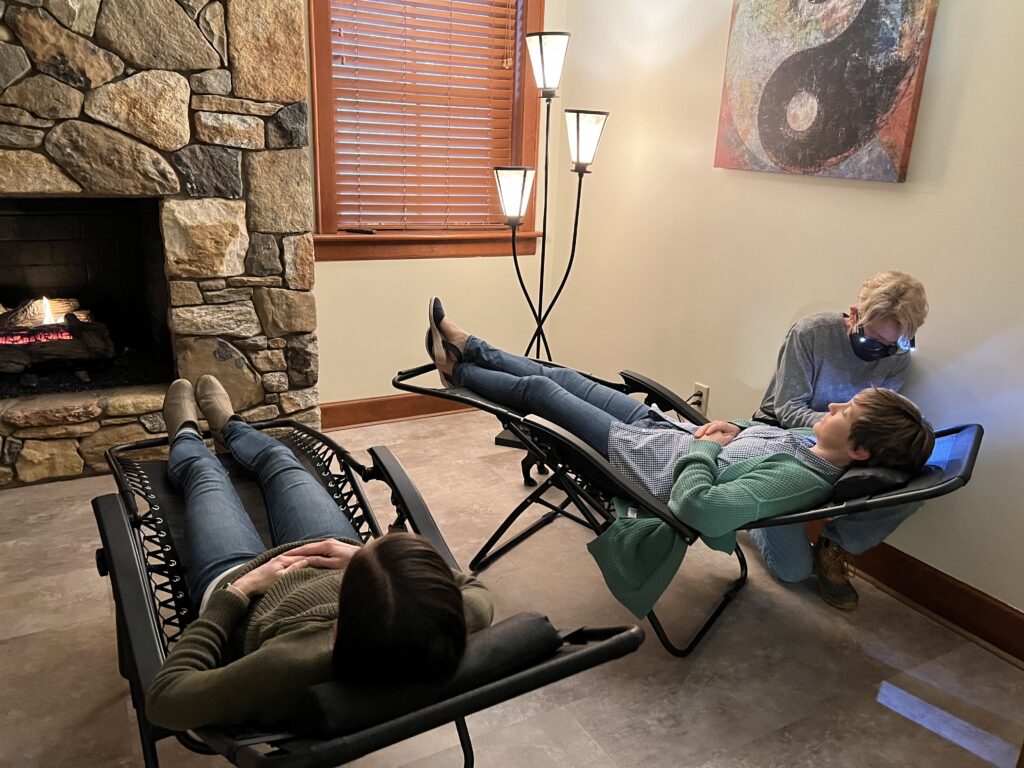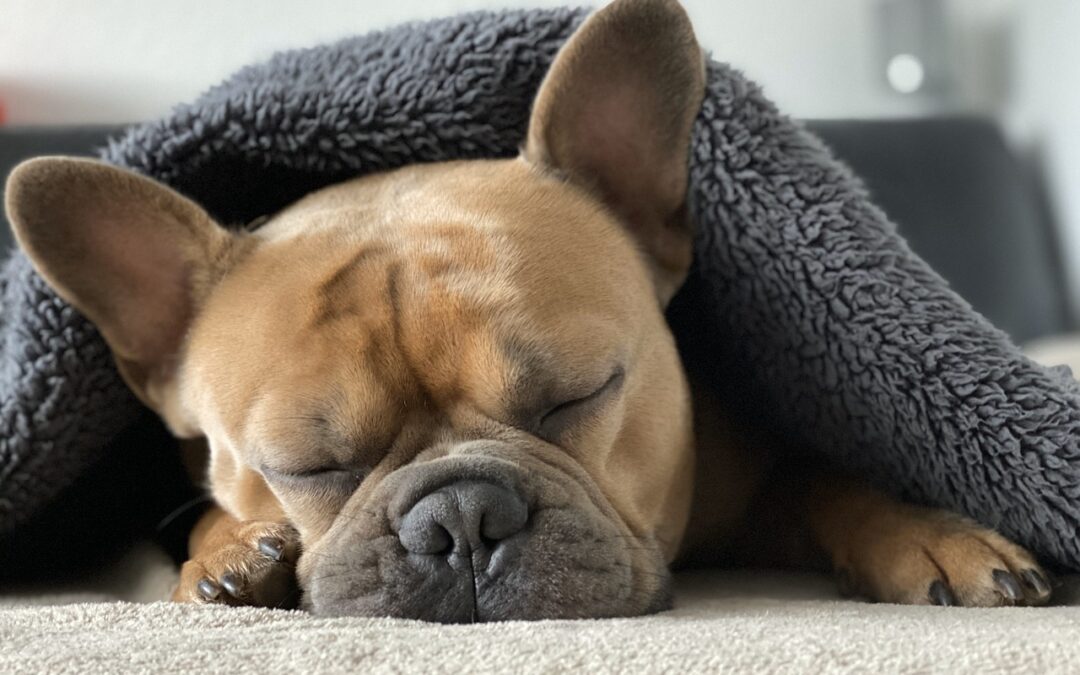Why do we sleep?
A good night’s sleep should leave you feeling refreshed and restored, ready to tackle the challenges of the day ahead. The body performs essential maintenance tasks to keep things running smoothly during sleep, activities that are extremely important for maintaining health. Cellular repair, elimination of toxins, and other critical functions are all ramped while you sleep to support cardiac, immune, and neurologic health.
What happens when we don’t get enough quality rest? Sleep deprivation has been linked to heart disease, diabetes, high blood pressure, and depression. Lack of sleep can interfere with memory and concentration and leave you more susceptible to cold and flu viruses. It can even leading to unwanted weight gain by causing an imbalance in the hormones that regulate appetite.
How can we improve our sleep?
Quality sleep has become big business, with a market crowded by sensor-laden mattresses, luxury linens, weighted blankets, white noise machines, and devices to track sleep cycles. There are, however, some simple behavioral and holistic remedies that can help you ease into a peaceful slumber. So, before you jump to expensive, high-tech sleep aids, try some of the easy steps outlined below to help you get to sleep, stay asleep, and wake up feeling refreshed and invigorated!
Note: If you find that your sleeplessness persists after trying some of these tips, you may want to consider evaluation for an underlying condition contributing to your difficulties. Sometimes referral to a sleep specialist is indicated.
What is “Sleep Hygiene”?
Do you feel drained and exhausted at the end of the day, only to find yourself staring at the ceiling when you get into bed? Anxious worrying can prevent you from drifting off or wake you up at 3AM. As one patient recently said to me, “I wake up worrying about things that I didn’t even know I was worried about!”?
Just like brushing and flossing can promote healthy teeth and gums, a regular, intentional routine sends a signal that the day is over, and it is time to rest. Try some of these suggestions to prepare your mind and body for bedtime and ease the transition from wakefulness to slumber.
Try to get some exercise- outdoors, if possible.
Building a healthy sleep pattern doesn’t start at bedtime. Physical exercise, especially out in the fresh air, is a natural sleep aid. When fatigued from exertion, your body is primed for rest.
Exposure to sunlight can help your body’s natural “circadian” rhythms by enhancing melatonin production. Try to spend some time outdoors even if that is not part of your exercise routine.
Vigorous activity when it is time to wind down, though, sends mixed messages to your body that can sometimes interfere with the transition to sleep. A relaxing yoga or stretching routine can help release stress and tension, priming your body and mind for sleep.
Start a mindfulness practice.
Maybe you’ve heard about “mindfulness”, but you’re not sure what it is. Mindfulness means turning off your “internal dialogue” and fully experiencing the moment through your senses. It is a way to “empty your brain” of everything that isn’t the here and now. Practicing mindfulness can relieve stress, promote healing, and improve your mental outlook.
If this is a new concept for you, try sitting quietly in a comfortable position with your eyes closed, focusing on your breathing. When thoughts creep in, draw your attention back to the breath. When thoughts creep in again, draw your attention back to the breath. When thoughts creep in again, and again- back to the breath! Don’t be discouraged; this is how it is for most people, at least at first.
If you have trouble sitting still, consider a practice like Qi Gong or Tai Chi that incorporate gentle movement with focused attention on the breath. Others prefer a more robust “moving meditation” like running or even walking in silence. There is no single, right way to do this, so find what works for you.
Eventually, your typically over-stimulated brain will adapt to, even welcome, these periods of respite. In time, you will find that your mind and body relax easily into their natural rhythms, allowing you to fall asleep more readily and wake up feeling refreshed.
Avoid blue lights before bed.
First, what is “blue light”? these are the light waves emitted from florescent lights, computer screens, tablets, cellphones, and TV’s. Interfacing with screens before bed interferes with your body’s natural rhythms, making it hard to fall asleep.
Experts recommend avoiding screens anywhere from 30 minutes to two hours before bedtime. Blue-blocking glasses are an option and can be worn any time of day to reduce the impact of blue light, but evidence of their impact on sleep is limited. Consider trying a pair, especially in the sensitive period before bedtime, to see if they are helpful for you.
Power down 30 minutes before bed.
Creating a gentle routine to tell your body that the day is over can help you slide between the sheets with both body and mind relaxed! Put on some soft music, light a candle, or try a heated neck wrap to ease tension from your neck and shoulders. This is a great time for your meditation/mindfulness practice or gentle movement in the form of a bedtime yoga routine or easy stretching.
Exposure to excessive light in the evening hours can interfere with your body’s circadian rhythm, fooling it into responding as if it’s daytime. This can shift your sleep cycle forward a few hours, making it tough to fall asleep. Half an hour before lying down, turn down the lights. No “last peeks” at your email or phone.
Taking these steps puts distance between your mind and body and the cares of the day, making it much easier to drift off and less likely that you’ll be awakened with anxious thoughts.
Curate your sleep space.
Reserve your bed for sleep and intimacy. Working in bed, or even in the bedroom, can leave your body keyed up and apprehensive when you try to switch gears. Maintain your bed as a “sacred space”, and your body will respond by easing more readily into sleep.
Your bedroom should be as dark and quiet as possible and kept at a comfortable temperature. Consider an eye mask and/or ear plugs if your sleeping arrangements are challenging. Using natural, breathable fabrics for your bedding can prevent overheating. And if you can’t remember when you bought your mattress, it is probably time for a new one!
Avoid alcohol close to bedtime.
While alcohol can make you feel sleepy, it can disrupt healthy sleep cycles and prevent you from entering the deeper stages of sleep that are the most important for brain health and function. You are liable to wake up easily and more often, especially in the latter half of the night.
Can acupuncture help with sleep?
Acupuncture can help ease muscle tension, promote a sense of calm, relieve sources of pain, and balance the nervous system. Softening the body’s response to stress means there’s less of a barrier to falling, and staying, asleep. Many patients achieve a state of deep relaxation or even fall asleep during a treatment, and most of my patients report improved sleep after a session.
At Acupuncture Energetics, in addition to individual sessions, we offer Group Acupuncture treatments to help calm the nervous system and facilitate healthy sleep. Offered at lunchtime and after hours and taking only 20 minutes, treatment are affordable, accessible, and highly effective. Stop by soon to kick back in a zero-gravity chair by the fireplace at one of our group sessions! See Services for details, or book an appointment today!


